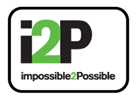Learn More! Transamerica & Financial Planning Building Blocks





» Visit transamerica.com » Like Transmerica » Tweet Transmerica
Financial Literacy
Youth Empowering Youth: Knowledge Above All
What does being wealthy really mean? Is it having a lot of money? Is it having a happy life? Is it being popular? Is it simply providing for yourself or your family for the next day or the next week? For each of us it can mean something very different and it is very real!
Whatever being wealthy means to you, like any goal in life, to achieve it we must each start with a plan, set a course, be resilient and overcome obstacles along the way.
Here we are going to focus on financial wealth, also known as cash. Improving your Financial Literacy, the understanding of how to manage money, is part of being self sufficient and resilient. This knowledge can empower you to lead the life you envision and help those around you to improve theirs.
So, where do we start?
First, you need to determine what wealth means to you and why it is important to define it.
Second, you need to set goals for savings. Inside, we will learn how to set SMART financial goals:
Specific Measurable Attainable Realistic Timely
Like Ray Zahab crossing the Sahara, we will learn why it is so very important to be consistent. Saving a portion of your income EVERY paycheck. Common wisdom is to set aside 10% of your pay into a savings account starting NOW. And be persistent to create a habit of success, continue this forever. This will improve your chances of achieving your goals.
Third, you need to budget. This does not have to be boring! It's probably even fun if you have a good 'app' that you can use on the go. It is simple, start by writing down everything you make and spend for two weeks. Then add it all up in the key categories that apply to you like clothing, books, food, entertainment etc. and see how much you spent! If you weren't careful it might have all went to entertainment and clothes right? That's fun but it's not going to make you wealthy and it certainly means you'll end up working longer and harder later in life to achieve your goals. Build your budget to spend 10% less on each category and then save that extra 10%. But always save it FIRST!
Teachers Helping Teachers:
Ready to Use Financial Literacy Lesson Plans:
| Lesson 1: Wealth | Lesson 2: Savings | Lesson 3: Budget | Average Cost of Living |
Individual Resiliency
Classroom Concepts:
When my child grows up I want them to be (fill in character trait here). I bet you didn't say resilient. Humble, loving, kind, courageous, smart, funny; those are all probably words that came to mind but why not resilient? Resilience is one of the key ingredients to life long successes and sustainability; why then do we spend so little time focusing on developing it in our children and ourselves?
Resilience is the ability to take the obstacles you face in life and overcome them by turning them into opportunities. It's the ability to adapt and persevere through adversity to achieve success. Resilient children, youth, & adults are not born that way. They have cultivated and grown their resilience through practice. They have made conscious decisions to not allow failure or the fear of failure to cripple or prevent them from achieving their goals. There are key qualities that mark a resilient person; the first of which is their ability to see how their habits positively or negatively affect their desired outcomes and adjust accordingly; the second is their belief that their actions matter and that they have the ability to positively influence their environment; the third is the belief that their future holds something better than today.
As you begin to lay the foundations for life long resiliency you will see that the key is starting; taking small sustainable steps towards becoming more aware of this concept and what it means to you. When you face adversity and failure, use them as learning experiences. Resilience is an inward change that results in outward action, so let's begin making those changes and developing these habits now!
Building Blocks Of Resiliency
Objectives:
- To introduce the concept of resilience and relate it to what it means to be a resilient individual by sharing personal experiences of individual resiliency.
- To understand that learning from our experience both positive and negative help us develop resiliency.
- To discuss and understand individual resiliency as learned behavior. By being positive and aware, you can influence your surroundings.
Ready to Use Individual Resiliency Lesson Plans:
| Lesson 1: Identifying Resilience | Lesson 2: Growth Through Adversity | Lesson 3: Awareness |
Social Entrepreneurship
Youth empowering Youth:
In this video you will see an example of social entrepreneurship at the University of Iowa Dance Marathon, and its importance in building a strong foundation for community involvement!
Katrina Siks discusses the micro enterprise and social entrepreneurship components of Hidden Harvest Ottawa. By mobilizing local volunteers and community groups, Ottawa's fruit and nuts can be valued, picked, and shared!
Teachers helping Teachers:
Social entrepreneurship focuses not only on providing goods or services but also creating positive social change. Whether at home or abroad, creating a business, which also helps to address a social issue/issues requires financial planning and resiliency to stay the course when obstacles arise.
The following lessons and activities help understand the difference between an entrepreneur and a social entrepreneur. Students discuss social issues in the world and use critical thinking skills to come up ways to address such issues as a social entrepreneur. Examples of successful social entrepreneurs are provided to help stimulate discussions.
Ready to Use Social Entrepreneurship Lesson Plans:
| Lesson 1 | Lesson 2 |
Live Your Tomorrow
It has finally arrived! It is time to enjoy what you have achieved! Whether your plan was to buy that new pair of running shoes or to help feed your family for the week! Enjoy it, but remember that this doesn't have to be a one-time occurrence. This time it was something smaller, but next time it may be your college education or maybe even retirement.









